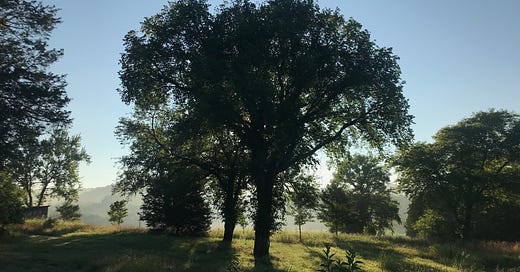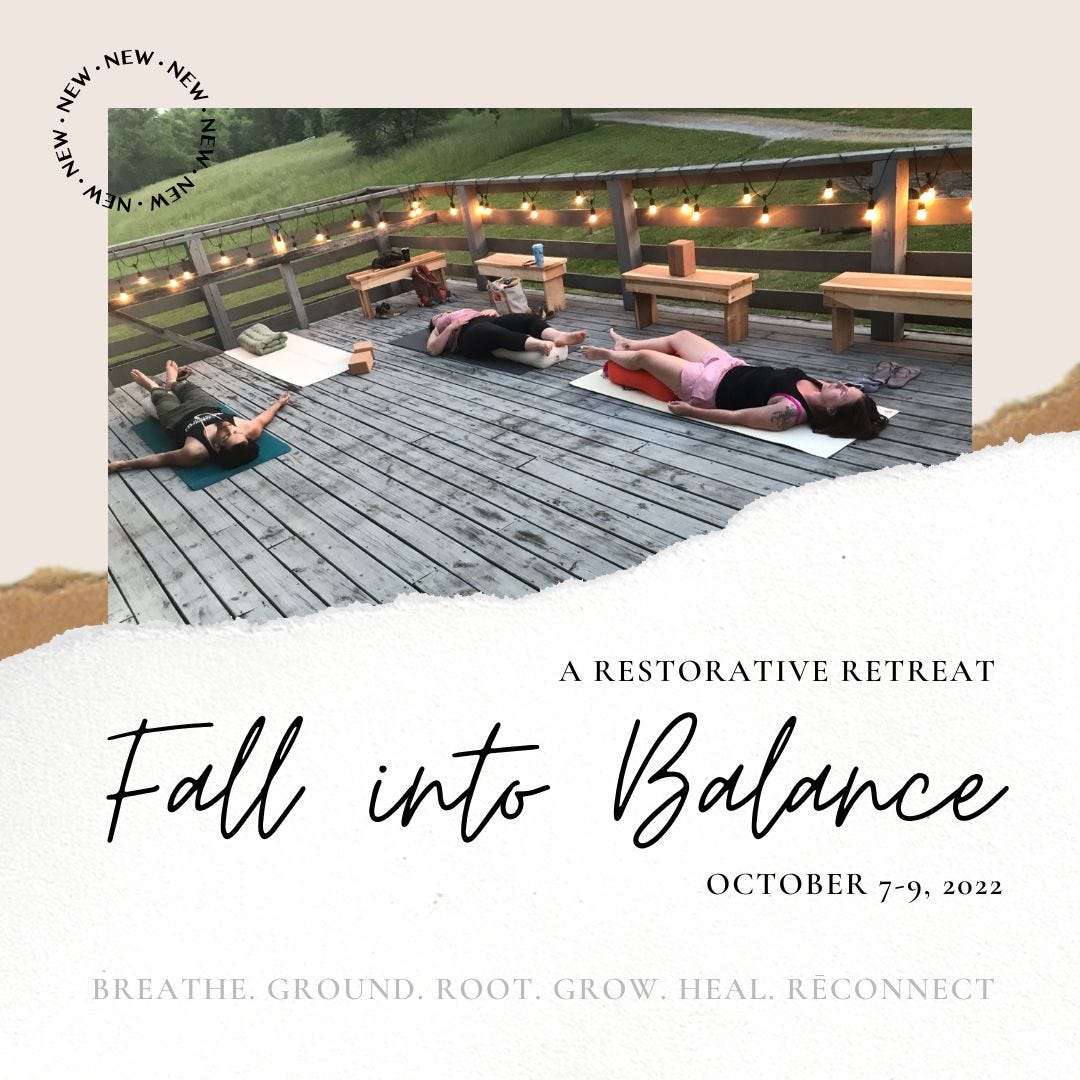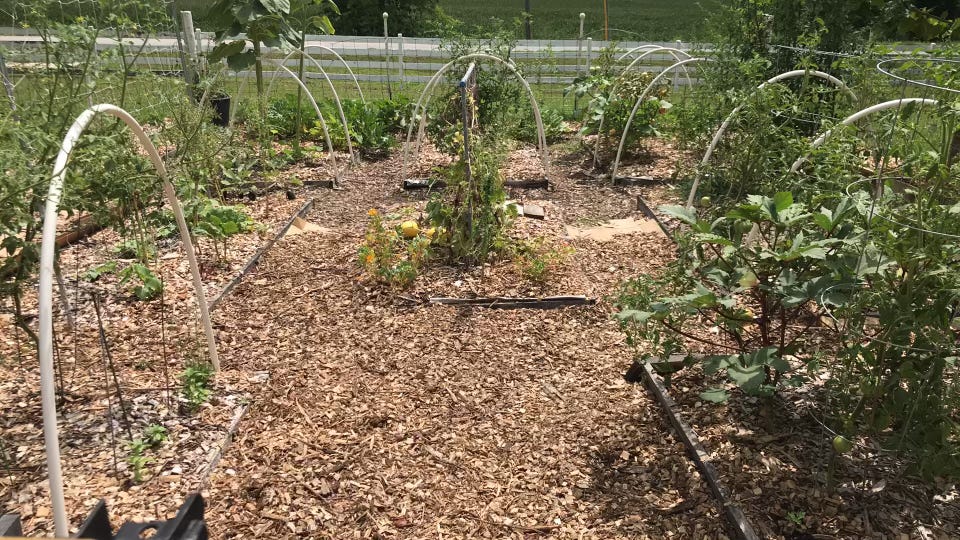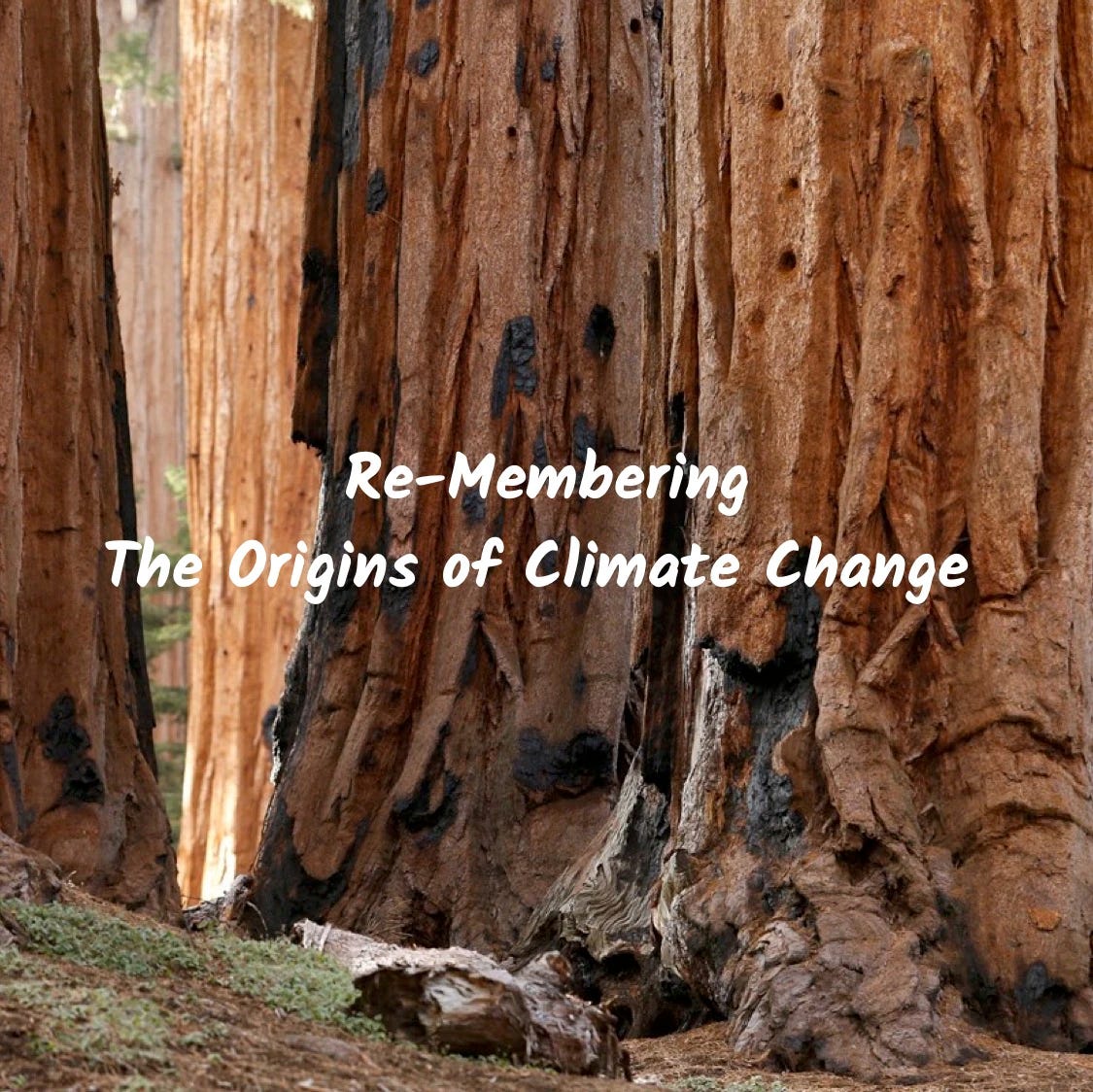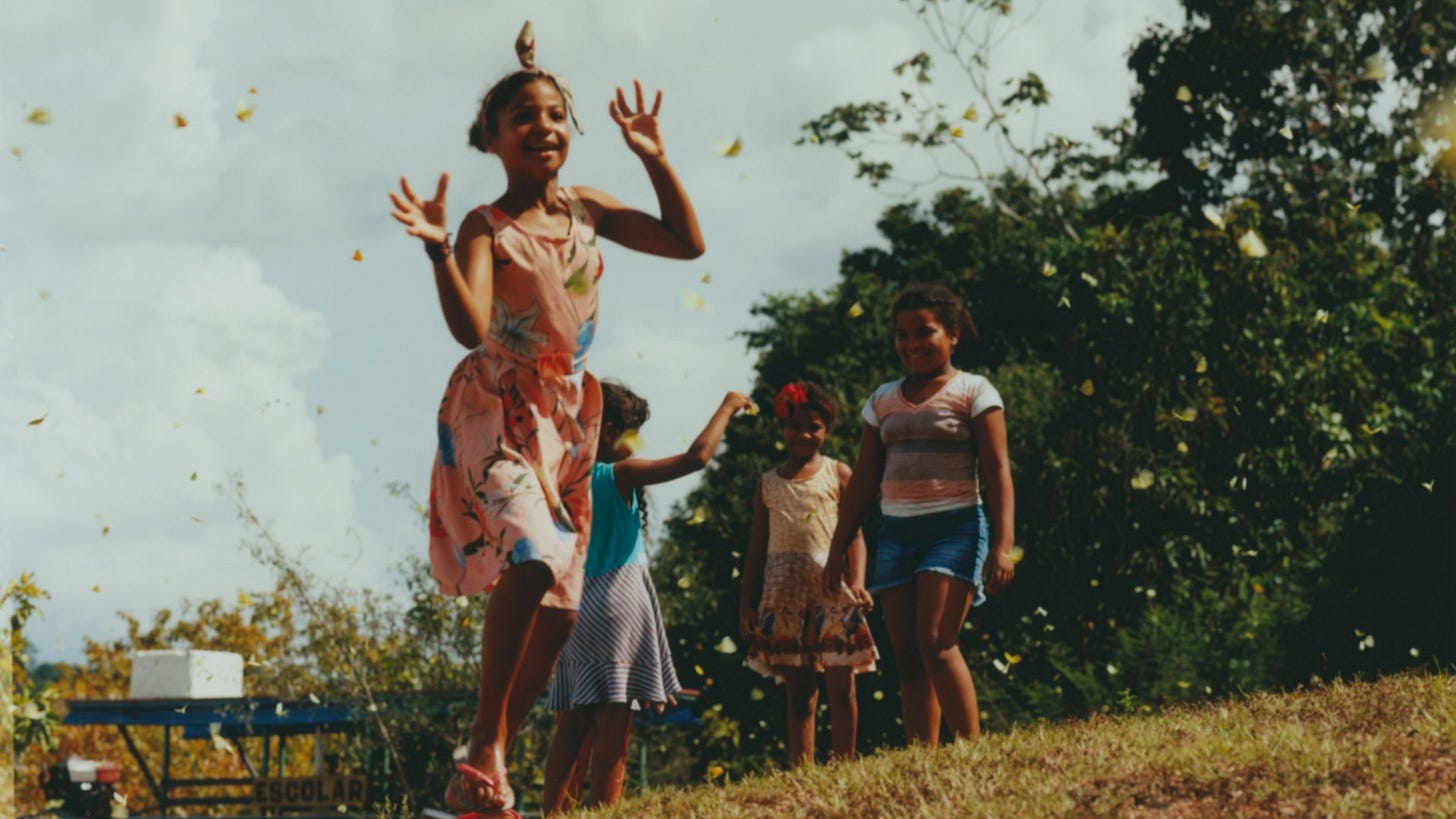The RēMind, No. 029: On Listening
Updates from Rē / Fall Into Balance 2022 / Sand Talk / Restoration Agriculture / Listening As A Radical Act / Indigenous Agroforestry in Mexico and Hawaii / Indigenous Sea Gardening
We, at Rē, ruminate almost daily on the importance of conversation as a means of knowledge translation, and on the importance of listening as a way of transformative learning.
In this week’s newsletter, we focus on listening… listening to the soil (see Mark Shepard’s Restoration Agriculture and our summer garden updates), to our bodies (see Fall into Balance Retreat 2022), to Indigenous thinking and knowing (see Tyson Yunkaporta’s Sand Talk and our RēNews spotlights), and to community needs (see Listening As A Radical Act).
Adaptive listening is central to all we are and all we do here at Rē, from how we grow produce for our community to how we facilitate participatory action research for others. Listening is how we shape the questions we ask and structure the courses and retreats we offer. Active listening is how we build peace and community both locally and globally.
We hope you find some time this weekend to listen to yourself: perhaps by taking a walk, reading a book (or perhaps some of the content we have curated below), listening to the sounds outside your window or perhaps taking 13 minutes to listen to your own breath.
All our best,
The Regenerative School Team
Updates from Rē:
IT’S OFFICIAL: FALL INTO BALANCE 2022
October 7-9, 2022 in Fayetteville, TN
Mark your calendars! We are happy to officially launch another restorative retreat offering for the upcoming fall season.
Thana Nu of Nourish Me Wellness, Caitlin Smith of Within Wellness, and Ashlei Laing of Rē : The Regenerative school will meet again at the farm to hold space and guide us into balance.
This retreat will be a fresh experience for all those interested in Ayurveda, yoga, soulful nourishment, self-care, and rēconnection to mind, body, and nature. Consider our invitation and lean into a beautiful practice for you. More details to come!
ALL ARE WELCOME! No experience needed! Only open minds!
Sign up at here AND join our facebook group here!
Our Garden is Growing!
Did you know that Rē has been growing fresh, chemical free food for our local community for the last 3 years? We donate fresh, garden-grown produce to our local food bank twice per week during the spring, summer and fall. Peppers, tomatoes, squash, and chard were just some of our bounty this week! What’s growing in your garden? Comment on this newsletter and let us know!
Our Intern Anthony Upcycled a Garden Furniture Set!
Last summer, our intern Bryn found a fibreboard table and bench garden set by a local dumpster. Since fibreboard breaks down in the rain, our intern Anthony replaced the table top and seats with locally milled tulip poplar boards! After sanding the wood, Anthony waterproofed them with natural tung oil and a nontoxic sealant made from cashew shells. Doesn’t it look great?
PEACE Garden Pathways Re-mulched!
Mulching our garden pathways improves the soil beneath the paths, which in turn improves our beds and benefits our garden. Mulch, like wood chips, are fantastic at supporting beneficial fungi. Fungi will not only break the mulch down into soil, they also help spread water and nutrients throughout your garden.
RēMembering the Origins of Climate Change
According to educator and theologian Parker Palmer, "the opposite of to remember isn't to forget, it's to dis-member." Course facilitator Sara Jolena Walcott applies this framework to our fragmented, short-term understanding of climate change. In this new, three-part course, participants will trace the roots of climate change back 500 years to its roots in colonialism, racism, and theology. Along the way participants in the course will also delve into their own family histories to make sense of the deep history of how we have arrived at today's climate crisis and how we can instead choose to build a more regenerative future. Click here to learn more about this upcoming course! Watch this space for dates and more details!
RēRead
All of our book recommendations have a new home on our website! Too access all titles we have mentioned in our newsletters, visit here.
Sand Talk: How Indigenous Thinking Can Save the World
Sand Talk brings a crucial Indigenous perspective to historical and cultural issues of history, education, money, power, and sustainability—and offers a new template for living. As an indigenous person, Tyson Yunkaporta looks at global systems from a unique perspective, one tied to the natural and spiritual world. In considering how contemporary life diverges from the pattern of creation, he raises important questions. How does this affect us? How can we do things differently?
To read more, click here.
Restoration Agriculture
Around the globe most people get their calories from “annual” agriculture — plants that grow fast for one season, produce lots of seeds, then die. Every single human society that has relied on annual crops for staple foods has collapsed. Restoration Agriculture explains how we can have all of the benefits of natural, perennial ecosystems and create agricultural systems that imitate nature in form and function while still providing for our food, building, fuel and many other needs — in your own backyard, farm or ranch. Mark Shepard’s new book, based on real-world practices, presents an exciting alternative to the agriculture system of eradication.
To read more, click here.
RēNews
Listening As A Radical Act
By Daphne Chouliarak Milner, Kinari Webb, Dr Érika Pellegrino, Juma Xipaia for ATMOS | June 28, 2022, about 20 minutes
This series of interviews features perspectives from two different communities native to the Terra do Meio region in Brazil and spotlights a planetary health nonprofit, Health In Harmony, that recognizes that the climate crisis, the extinction crisis, and the justice crisis must all be addressed together. Health In Harmony uses “radical listening” as a process to hold meetings and ask what rainforest communities would need.
“A colonial mindset means that Indigenous and local communities are rarely listened to despite the fact that they are the best experts in what the solutions are, and their solutions are even more rarely invested in.”
To read a beautiful piece on why listening to, respecting, and acting on the experiences of Indigenous people is necessary to planetary health, click here.
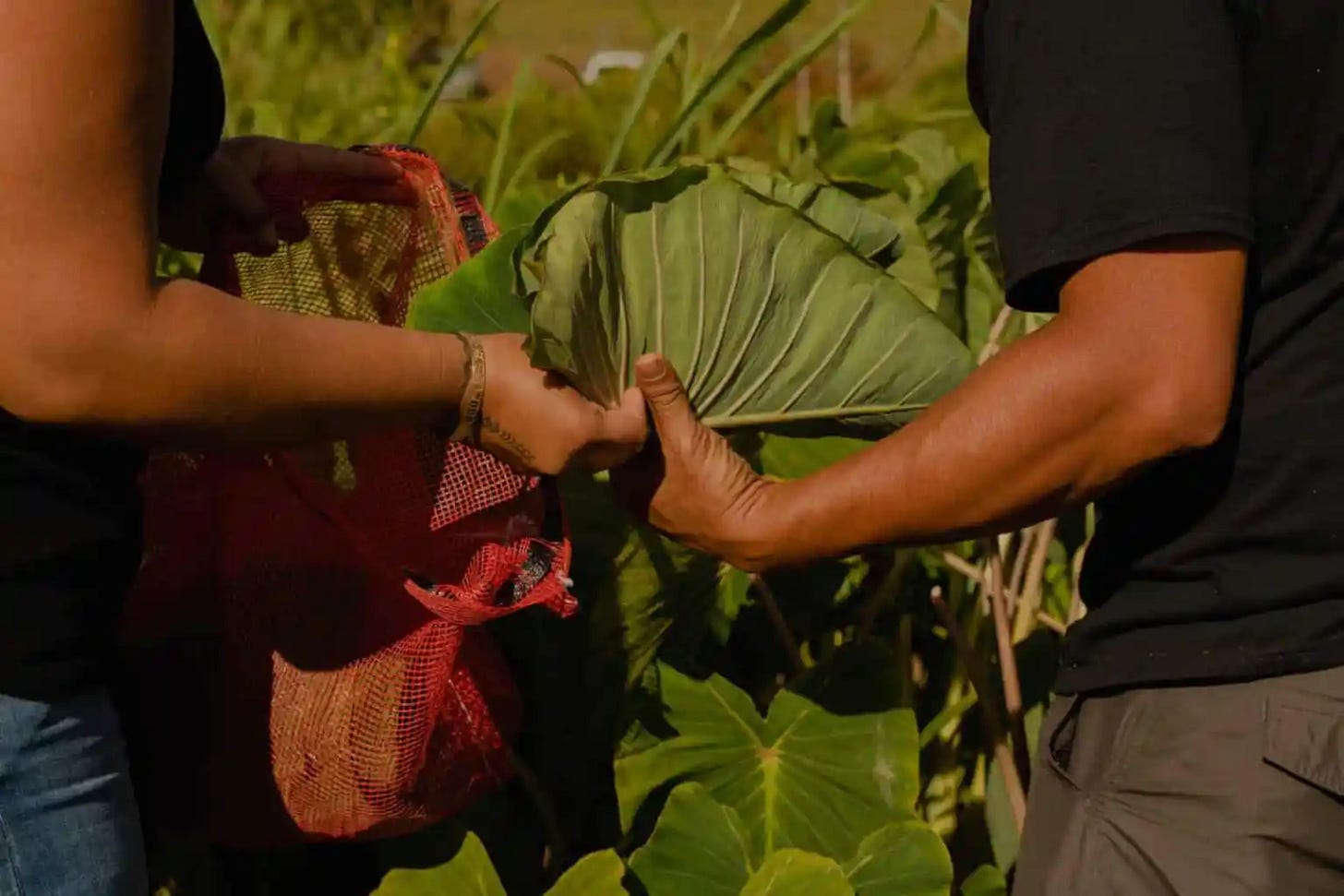
The Farmers Restoring Hawaii’s Ancient Food Forests that Once Fed an Island
By Nina Lakhani for Grist | June 30, 2022, about 15 minutes
Maui is a hub for GMO research, but Indigenous farmers are trying to bring back the abundant and thriving landscapes of their ancestors.
“What’s stopping Hawaii feeding its own people is not lack of knowledge or skills, it’s the power structure, the ongoing plantation mentality which tips the scales in favor of big ag and developers while rubbishing traditional knowledge. We need to change this narrative because, without radical changes, what will be left of this place in a hundred years?…
Traditional farming is about facilitating natural processes in order to feed the soil so that the land can feed us,” said Kekona…. “It’s a constant cycle, everything existing together at the same time, with crops always feeding the soil and nurturing each other,” said Kekona. “This is the essence of the forest food system, which our ancestors passed down to us over centuries”
To read more about the valiant effort to restore Indigenous farming in Maui, click here.
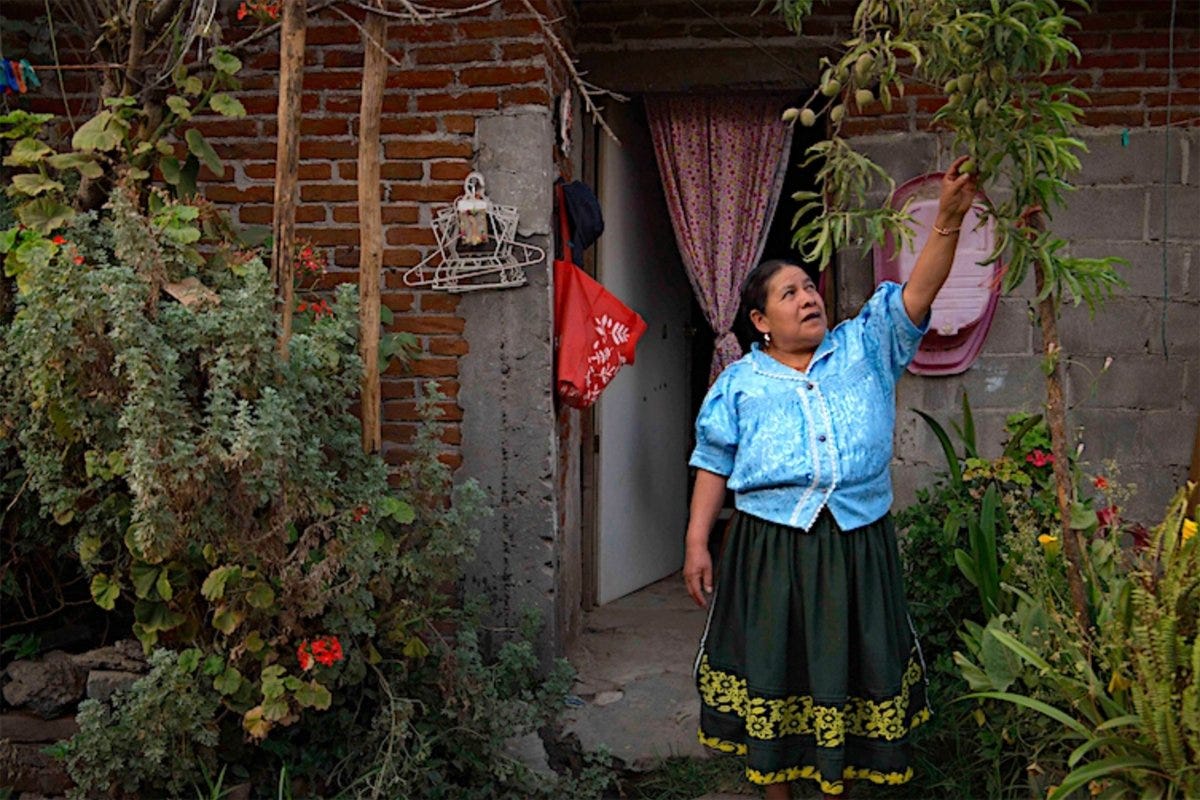
Indigenous Agroforestry Dying of Thirst Amid a Sea of Avocados in Mexico
By Monica Pelliccia for Civil Eats | June 10, 2022, about 15 minutes
Avocado farms–mostly supplying the U.S. market–dominate water resources in the Mexican town of Angahuan, forcing Indigenous P’urhépecha healers to buy clean water to keep their medicinal plants alive.
“In the past, we had a lot of plants, but now everything is almost dry, due to lack of water,” explains Leonarda Soto, 29, Apollonia’s daughter-in-law, while her three kids play with a dog and some rabbits on the patio. “We have to buy water when it is not the rainy season. People take water from our freshwater spring: It is a problem.”
To read more about the incredible fight to preserve culture, traditional medicine, and water in Mexico, click here.
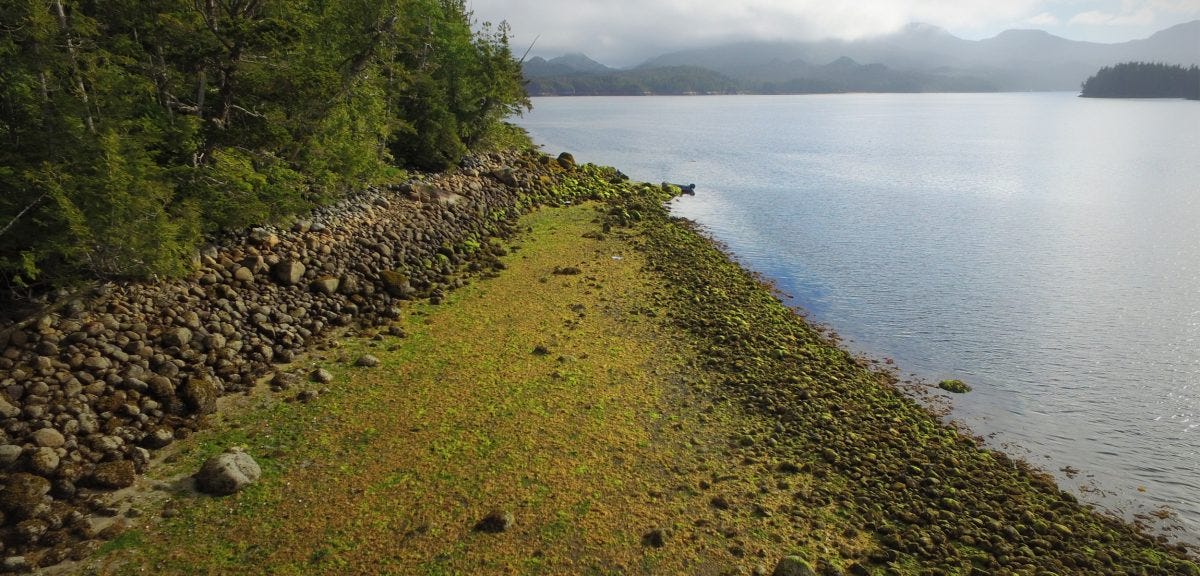
How Indigenous Sea Gardens Produced Massive Amounts of Food for Millennia
By Ashley Braun for Hakai Magazine | July 18, 2022, about 6 minutes
By focusing on reciprocity and the common good—both for the community and the environment—sea gardening created bountiful food without putting populations at risk of collapse.
Humans [once] carefully transformed the world’s coasts into gardens of the sea—gardens that produced vibrant, varied communities of marine life that sustained Indigenous peoples for millennia. And in certain places, like on the west coast of North America in what is now Washington State and where the Swinomish are building a new sea garden, these ancient practices are poised to sustain them once again.
Click here to keep reading about historical and future Indigenous sea garden practices in the United States.
Some other interesting articles we caught up on this week:
The Joy of Saving the World | Liza Featherstone for The New Republic, June 28, 2022
Give Us Abortions in National Parks | Molly Taft for Earther, June 30, 2022
Scaling Agroecology |Emily Payne for Food Tank, July 01, 2022
Unleashing the Mississippi | By Boyce Upholt for Hakai Magazine, July 12, 2022
What Makes For A Heat Wave, Anyway? | Christine Hauser for NYT, July 18, 2022
From Farmland to Frac Sand | Lisa Held for Civil Eats, July 19, 2022
Summer Heat Driving Food Prices Higher | Kate Yoder for Mother Jones, July 19, 2022
What The Webb Space Telescope Images Reveal? | Stanford for Futurity, July 19, 2022
As always, we at Rē are grateful for your attention and support. If you liked this newsletter, consider donating at https://regenerativeschool.org/redonate/
Thank you and see you soon!

